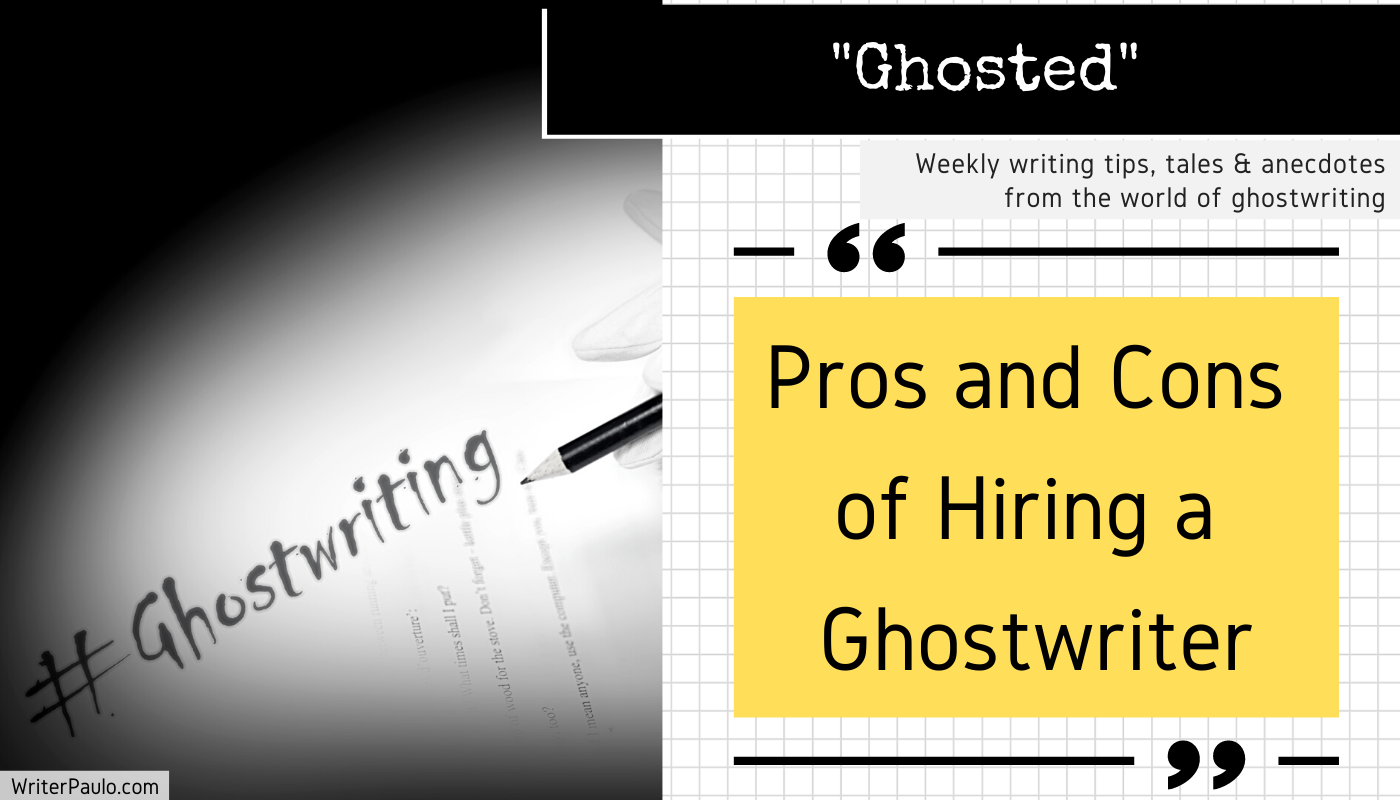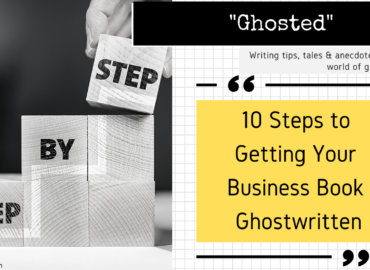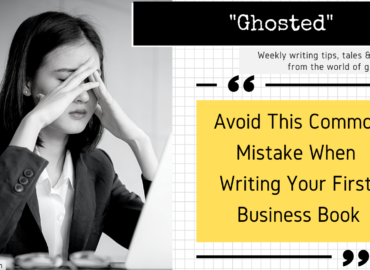A version of this article first appeared on Entrepreneur.com on May 21, 2020.
Ghostwriting is an open secret in the nonfiction world, with an estimate of as much as 60 percent of nonfiction books being ghostwritten. Ghostwriters have allegedly produced books for Donald Trump, Hillary Clinton, and Michelle Obama.
But ghostwriting isn’t for everybody. Here are some of the reasons people eventually decide to hire (or not hire) a ghostwriter.
1. No time to write a book.
This is the number one reason people usually contact me to get a book ghostwritten, especially after they’ve tried to write one themselves for several months.
A surprising lesson all new writers quickly learn is that writing takes a long time. A high-quality, 80,000-word book can easily chew up 200 hours to produce.
Even I have trouble writing for myself. I’m always so busy with my “day job” (writing for others) that trying to find time to write my own books and blog posts is difficult.
If you’re low on time, a ghostwriter might be an option for you.
2. Can’t write.
Like playing the piano, writing is a fine art. This gets lost on a lot of people because self-publishing and blogging have given the false impression that writing is easy.
Publishing is easy. But the skill of writing well takes years to hone.
The more you want your writing to engender an emotional impact in others, the more attuned your writing skill needs to be. Adroit writing can turn even the most boring business book into an enthralling read.
If you struggle with prose, a ghostwriter might be an option for your book.
3. Doesn’t like to write.
And then there are the people who simply don’t like to write.
I used to write computer software for a living. (I eventually came to hate it. But it paid the bills.) When I was ready to drop the coding keyboard for the typewriter, my business partner at the time told me he would never be able to sit and write for hours on end, even though that’s exactly what he did every day as a programmer!
But writing prose is its own beast. And some people simply don’t like to do it.
Ironically, I wrote a few articles for his business blog and, several months later, he had more traffic to his site in one month from those blog posts than he had ever had in several years! He saw the value of writing and was happy with the result—but he still dislikes writing things himself!
If you’re the type of person who has something to say but simply can’t stomach writing, hiring a ghost might be the only choice for you.
4. Learning or writing impediment.
I was once asked to send my CV to a publisher for a book they were preparing. The author was a highly successful individual who was a voracious reader, but he had a learning disorder that prevented him from writing an entire book.
The publisher was confident the book would sell, so they were looking for the right ghost to get it done fast.
Some people would love to write, but they have certain hindrances that prevent them from writing in a way that others can fully understand. In these cases, a ghost might be an option.
5. Price and ROI.
The thing about ghostwriting is that it can be expensive. And the reason it’s expensive is that it takes a long time to produce a high-quality book.
The expected ROI for a book is determined by numerous factors, including:
-
If it’s going to be self-published or professionally published.
-
The genre of the book (straight “business books” are a tougher sell to big publishing houses).
-
If the book will promote something else inside it, such as a training program, course, or service.
An experienced ghost will give you the facts on the pricing and what you can expect in terms of an ROI before commencing on the project with you.
I normally have this conversation in detail with any potential clients before any money exchanges hands. It means I sometimes lose deals because, if I think the client won’t make a return on their book, I tell them openly.
But it also means that, when I do get a deal, all the cards are on the table, and we both believe in the book. We’re both convinced it’s going to be a hit.
That makes for excellent teamwork and a highly enjoyable project.
Some people value their time more than their money. And some books are such guaranteed hits that a ghostwriter’s fee isn’t a dealbreaker.
But if you don’t have the money to invest in a ghostwriter (or simply don’t want to invest in it), then ghostwriting is probably not for you.
6. Traditionally published or self-published
Traditionally published books are generally more difficult to produce. You also need a detailed synopsis to send to publishers/agents. That adds time to the project.
The quality of the book usually needs to be far superior to self-published or vanity-published books, because getting the book published entails a lot more than just logging in to Amazon and uploading a PDF file. Again, more time.
But traditionally published nonfiction books also come with the potential of an advance, so the ghostwriting fee might be easier for the author to swallow. Also, some agents/publishers might feel more comfortable if there is a professional ghost behind a project because they know the book will be delivered on time and that it will be of professional quality—which means they might be even more willing to fork over that advance.
The choice to use a ghostwriter is strongly influenced by the author’s desire to be published by one of the big publishing houses, or if they want to self-publish, vanity-publish or hybrid-publish.





